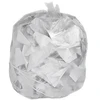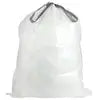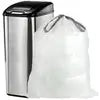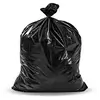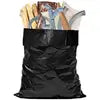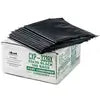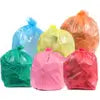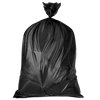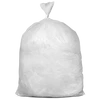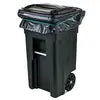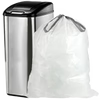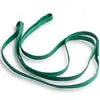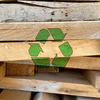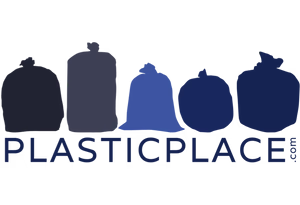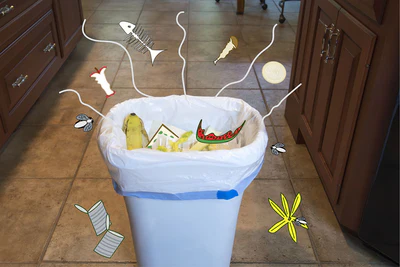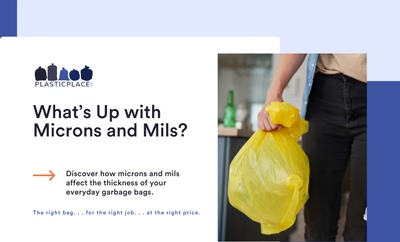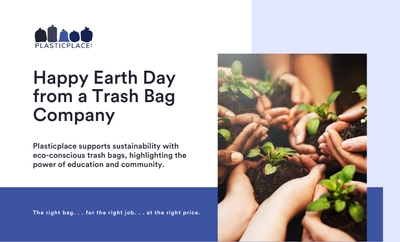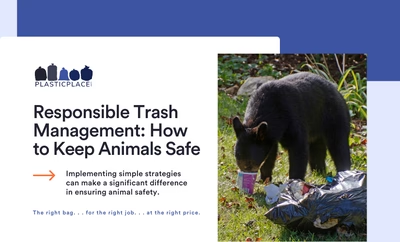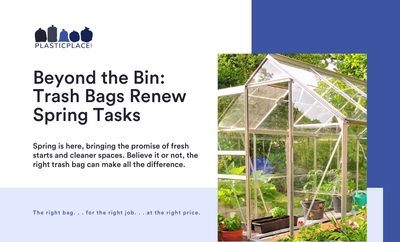Source: Irina Anosova/Shutterstock
Do you see a forest of old pill bottles when you open your medicine cabinet? If the answer is yes, don’t worry — many people do! However, as easy as it can be to let old medications hang around after you stop needing them, experts say there are significant risks to doing so.
For anyone with medicines they no longer need, now is the perfect time to learn about your options for disposing of them. Here’s a quick primer on how to dispose of old pills the right way.
When Should You Throw Away Old Pills?
In a perfect world, we’d all get just the amount of medicine we need and no more. It would always be the right medicine, and none of it would have an expiration date. Of course, the reality is a different story, so here are several scenarios in which it’s time to throw away your old medications:- Your doctor tells you to stop taking the medicine. Whether it’s because you no longer need the medicine or your doctor has concerns, always listen when your doctor tells you to stop taking a drug.
- Your doctor changes your prescription. Often, a prescription change will leave you with a partially-used supply of the old medicine. Ask your doctor if it’s OK to throw the old medicine away.
- The medicine is past its expiration date. Taking expired medications is never a good idea, so throw out anything you find that’s past its expiration date.
The Best Option: Drug Take-Back Programs
Because old medications are such a common problem, the DEA and the pharmaceutical industry have worked together to set up drug take-back programs. These programs accept all kinds of prescription medication for disposal by qualified professionals, so they’re super convenient as well as safe.
National Prescription Drug Take-Back Day is the largest of these programs, and it’s happening on April 30, 2022. Across the U.S., authorities will be setting up drug take-back points for safe medication disposal. It’s a great opportunity to get this important task done if you’ve been meaning to clean out your medicine cabinet.If you missed a take-back day, or you’ve got more medicine to dispose of, don’t worry! Local pharmacies, community health centers and/or police stations often offer permanent secure drop-off points where people can leave their old medicines to be safely destroyed. Check the drug take-back location list to find one near you.Find the Perfect Clear Trash Bags for You
Source: CGN089/Shutterstock
Backup Plan: The Flush List
The FDA has a list of certain drugs that you should get rid of as soon as you no longer need them, known as the “flush list.” Because these drugs are potentially dangerous or easy to abuse, the FDA says that it’s acceptable to dispose of these drugs by flushing them down the toilet or sink if you don’t have a drug take-back location easily accessible.
However, you shouldn’t flush any medication that isn’t on the flush list, and take-back programs are always a better option if they’re available. Flushing meds is bad for waterways and aquatic life. The FDA considers the tradeoff worth it to get potentially dangerous drugs out of people’s homes quickly, but it should never be your first choice.
Backup Plan: The Trash
If you don’t have easy access to a take-back program and your medication isn’t on the flush list, the trash is your best option. However, there are some steps you’ll need to take first.
First, remove your personal information from the medicine bottles. This is a good idea before you throw away any medicine, as it helps avoid giving away personal info to potential identity thieves. Scratching all of the label information out with a marker is a simple and effective way to go.
You don’t want pills to be accessible to someone going through your garbage, or for them to leach chemicals into the water supply around a landfill. Thus, the best option is to place them in a heavy-duty bag that won’t leak. (A drawstring trash bag is also a good idea to help keep the bag closed.)
Then, mix the pills in with any kind of trash that would make someone think twice about rooting around for them. Used cat litter and coffee grounds are the standard choices most authorities advise, but generally, anything that makes you go “yuck” will work! When this is done, you’re ready to place your medication in the trash. Order Your Heavy-Duty Trash Bags Here!
Source: Tatevosian Yana/Shutterstock
Disposing of all trash correctly, including medications, helps keep all of us safer and healthier! Whether it’s our high-quality clear trash bags, our colored trash bags for color-coded systems or our classic black trash bags, Plasticplace’s huge selection of trash bags are designed to give everyone the tools they need to get their trash bagged safely and efficiently. 4.9 out of 5
4.9 out of 5  Mix & Match: Buy any two products for 10% off!
Mix & Match: Buy any two products for 10% off!











